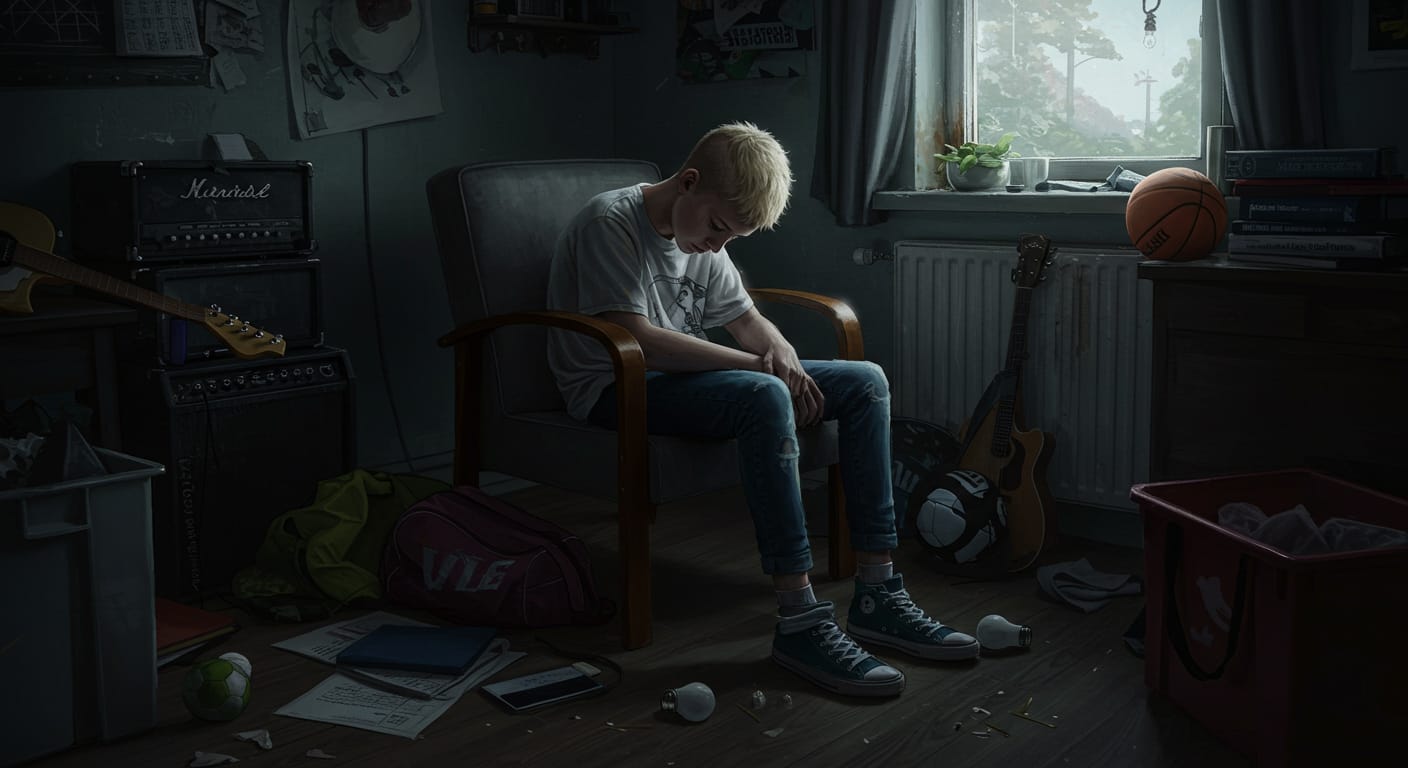May I Have Your Attention, Parents?
Sometimes it’s overlook and although the term “red flags” has gained popularity on social media, but when it comes to teen mental health, red flags are far more than trends—they are warning signs that require serious attention. Early detection can be the difference between long-term emotional struggle and timely support that leads to healing.
As a parent, guardian, or caregiver, being able to spot these signs in your adolescent child can be life-saving.
Red Flags Aren’t Always Obvious
Before we dive into the red flags, it’s important to understand: no single sign confirms depression. The symptoms must typically last for at least two weeks and disrupt daily functioning to meet clinical criteria. However, noticing changes early on can help you act before things worsen.
Teens experience rapid emotional, hormonal, and social changes. Many struggle to identify what’s happening inside them, making your awareness as a parent vital.
Red Flag #1: Increased Irritability or Mood Swings
While many people associate depression with sadness, anger and irritability are just as common in teens. Your teen might lash out over small things, snap at family members, or seem constantly frustrated. This is often an attempt to regain control over emotions they don’t fully understand.
Red Flag #2: Negative Self-Talk or Hopelessness
You might hear your teen say things like:
“I’m so stupid,” “No one cares about me,” or “Nothing ever works out for me.”
These aren’t just expressions of frustration. These statements can reveal a dangerous internal dialogue—where your child begins to believe they are worthless or unlovable.
Red Flag #3: Trouble Focusing or Forgetfulness
Depression can fog the brain. Tasks that used to be simple—like doing homework or remembering instructions—may now feel overwhelming. If your child was once a focused student but now struggles to complete basic assignments, don’t ignore the shift.
Red Flag #4: Changes in Sleep Habits
Depressed teens often experience disrupted sleep patterns. They may sleep all day or struggle with insomnia. Sleep becomes either an escape or an impossibility. Both are signs that something is off internally.
Red Flag #5: Loss of Appetite or Overeating
Changes in eating habits can also signal depression. Some teens overeat to self-soothe, while others lose all interest in food. Watch for unexplained weight changes, skipping meals, or emotional bingeing.
Red Flag #6: Withdrawing from Activities and Friends
Has your teen lost interest in hobbies, friends, or social events they once loved? Depression often drains joy from previously exciting activities. If your teen has stopped gaming, drawing, playing sports, or attending social events, it could be more than just a phase.
Red Flag #7: Unexplained Aches and Physical Complaints
Though depression is a mental illness, it often shows up in the body. Teens may complain of constant headaches, stomachaches, back pain, or even dizziness—without any clear physical cause. These psychosomatic symptoms are real and should never be dismissed.
Your Role as a Parent Matters
You may be juggling work, responsibilities, and guilt—especially if you feel you’re not always there for your teen. But know this: your awareness and action can change everything.
If a teacher mentions concerns, or if you notice multiple red flags, don’t wait. Seek professional help—a pediatrician, counselor, or mental health therapist. Depression is treatable, and early intervention can save your teen’s future.
In Conclusion: Be Present, Be Alert, Be Loving
These red flags aren’t meant to scare you—they’re meant to prepare and empower you. Your teen may not know how to ask for help, but you can help open the door.
👉 Start the conversation. Listen without judgment. Be their safe space.
Let your child know: “I’m here for you. No matter what.”
Together, we can break the silence around teen mental health—and build a world where our children don’t have to suffer alone.











